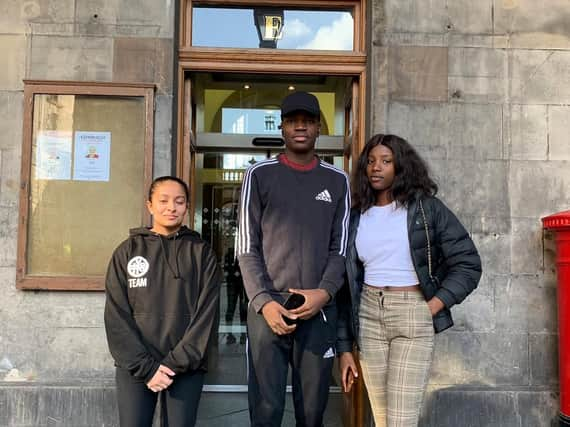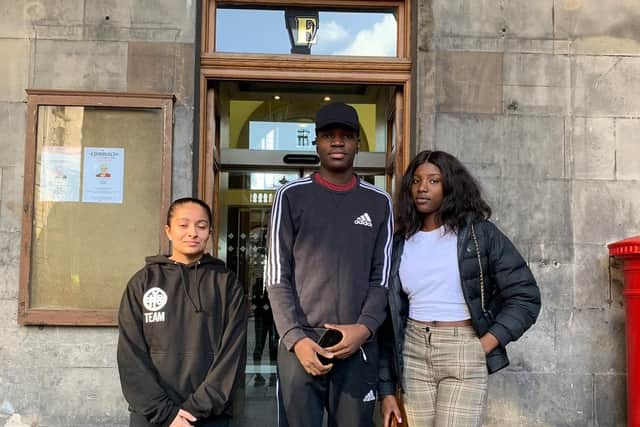Edinburgh children give shocking accounts of racist abuse in schools amid claims 'teachers just don't act' on it


The city council’s vice education convener has ordered an “honest report” on racism in Edinburgh’s schools and has called for more support for staff and a rethink about how certain subjects are taught.
The move came after three young people, supported by charity Intercultural Youth Scotland, told councillors they have been victimised in Edinburgh’s schools and received little or no support from staff.
Advertisement
Hide AdAdvertisement
Hide Ad

Rama Hane said she was told “school’s not for you” but has gone on to pass her Highers.
She said: “I’ve been bullied for my skin colour since S1. A teacher said to me that they didn’t think that I would be able to pass my exams – that was due to the number of times I had to report a racist incident.
"Usually they wouldn’t handle it the best way – students wouldn’t get the right punishments, they would brush it under the carpet. I was uncomfortable to put my hand up in classes because I was already being judged for my skin colour.
"In S3, one girl came to the school with her cousins, and outside the school gates called me a n*****, go back to your own country – you don’t belong here. That was with the whole school watching. I got excluded the next week and she didn’t get any punishment for it.”
Advertisement
Hide AdAdvertisement
Hide AdIfe Adedji said his headteacher ignored him after being verbally abused.
He said: “During high school I did face a bit of racism – but I would keep it to myself or I would just go home and tell my mum because I didn’t think the teachers would do anything about it.
“Last week, a girl came up to me and she called me the n-word. I told her not to because it’s offensive, but she said she doesn’t see the problem with it. She said she didn’t know it was a bad thing to say because she hears it in songs.”
Nisha Singh told councillors that there is a “massive lack of cultural understanding” in schools.
Advertisement
Hide AdAdvertisement
Hide AdShe added: “In school, racism is not talked about at all. If you are affected by racism, there is no-one you can talk to and no-one to report it to.
“Teachers don’t understand what young Sikh girls and people from ethnic minorities face.”
Khaleda Noon, founder of Intercultural Youth Scotland, has called for more support from the council for young people from diverse communities.
She said: “Organisations, schools and teachers, councillors, people who are there to support our young people are just not culturally proficient in any way – to be able to understand how it feels to go through schools in Edinburgh and over Scotland, dealing with this kind of hatred and racism.
Advertisement
Hide AdAdvertisement
Hide Ad“It’s really important that we have an education system where teachers are culturally proficient. i have found quite a lot of the time that teachers just don’t act on racism – people aren’t taking it seriously.”
The council’s vice-convener of education, children and families, Cllr Alison Dickie, said the authority “can’t keep going on ignoring these issues”.
She added: “There’s problems around training for staff, that’s an understanding of our language and how we teach history.
“We have had some meetings with different organisations. In October we will push to address some of these things with cross-party discussions.
“We need to really listen to their stories and then need to be part of what goes into the solution – people with real, lived experience, the young people themselves.”
